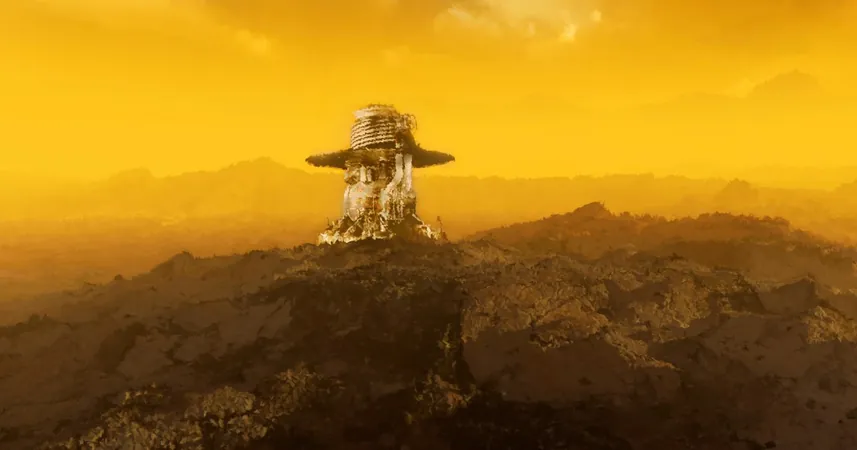
A Soviet Spacecraft is Plummeting to Earth – What You Need to Know!
2025-05-09
Author: Jia
A Defunct Giant Heads for Earth!
Hold onto your hats! A 1,100-pound Soviet-era spacecraft, known as Kosmos-482, is set to make an uncontrolled re-entry into Earth’s atmosphere this weekend.
What Happened to Kosmos-482?
Originally launched in 1972 with ambitions to land on Venus, a rocket malfunction left this relic spinning in orbit for over five decades. But now, experts predict it will plunge back to Earth, with re-entry expected on Saturday.
Should You Be Worried?
While a falling chunk of metal might sound alarming, there's no need to panic! In fact, the European Space Agency (ESA) reassures us that satellite re-entries happen almost daily without incident. Most spacecraft burn up during re-entry, reducing the chance of debris reaching the ground.
The Odds of Getting Hit Are Astronomically Low!
ESA officials have made it clear: the risk of being injured by space debris is minuscule—less than 1 in 100 billion. Just to put that into perspective, you’re 65,000 times more likely to be struck by lightning!
When Exactly Will It Fall?
Predictions are tricky, but ESA forecasts Kosmos-482 will descend around 4:26 a.m. ET on Saturday, with a possible window of approximately 4.5 hours. The U.S. Space Force estimates a slightly earlier re-entry at 1:52 a.m. ET.
Where Will It Land?
The spacecraft could land anywhere within a vast latitude range of 52 degrees North to 52 degrees South, covering regions in Africa, Australia, North and South America, and large parts of Europe and Asia. The latest intel suggests it might plunge into the Pacific Ocean or the Southern Ocean near Australia.
A Capsule Built for Venus!
What makes Kosmos-482 particularly intriguing is that its spherical landing capsule is designed to survive extreme heat on Venus. This raises the possibility that it could withstand re-entry intact, although a rough landing is expected due to its age.
Final Thoughts: No Immediate Danger!
So while the thought of a piece of history crashing down may be captivating, don’t lose sleep over it. The risks are remarkably low, and scientists like Marco Langbroek are keeping close tabs on the situation, ensuring that if you hear a thud this weekend, it won’t be the end of the world.





 Brasil (PT)
Brasil (PT)
 Canada (EN)
Canada (EN)
 Chile (ES)
Chile (ES)
 Česko (CS)
Česko (CS)
 대한민국 (KO)
대한민국 (KO)
 España (ES)
España (ES)
 France (FR)
France (FR)
 Hong Kong (EN)
Hong Kong (EN)
 Italia (IT)
Italia (IT)
 日本 (JA)
日本 (JA)
 Magyarország (HU)
Magyarország (HU)
 Norge (NO)
Norge (NO)
 Polska (PL)
Polska (PL)
 Schweiz (DE)
Schweiz (DE)
 Singapore (EN)
Singapore (EN)
 Sverige (SV)
Sverige (SV)
 Suomi (FI)
Suomi (FI)
 Türkiye (TR)
Türkiye (TR)
 الإمارات العربية المتحدة (AR)
الإمارات العربية المتحدة (AR)